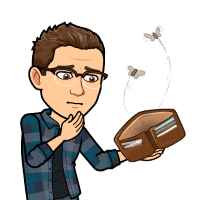You’ve started your business. You’ve contacted a web designer. They’ve banged out a spectacular looking template for your new website and you’re chuffed as nuts.
“Right, all I need now is the copy you want on the pages,” says the web designer.
*Clunk*
That’s the sound of your heart sinking (other noises are available).
Not only do you now have a load of words to write, but you’ll need to make sure they’re optimised for search engines to help generate:
- traffic
- leads
- sales
Lick a lemon, that’s a lot!
But have you considered working with a copywriter?
Working with a copywriter
Your website is your main marketing tool. It’s your main online presence, so if the words aren’t right, visitors will click away. It needs to have engaging words that can turn browsers into buyers.
A copywriter does just that, and the best way for one to achieve it?
By you being a bloomin’ fantastic client.
If you’re serious about making your business look its best while being a top-notch client into the bargain, here are some tips for working with a copywriter:
1. Fill the copywriter’s project planner in with as much info as possible
I call it a project planner, other writers call it something else. We’re a bit weird like that. It’ll be a document asking what you want writing, the tone of voice you’d like and a load of other questions.
To make sure copywriters can work to the best work possible, they need this filled in with as much detail as possible.
If you work in a technical industry that uses words which must be included, jot these down. Sure, we’ll research your industry, but if you need specific words, let us know.
Also, tell us about your customers:
- who are they?
- how old are they?
- why do they come to you?
It’ll help us understand what you do and why you do it.
2. Whatever we’re writing — tell us what you want it to achieve
Is it a home page? Product descriptions?
Product descriptions?
Whatever we’re writing, we need to know what action you want your customers to take.
Do you want them to buy a product or service? Download something for free? Sign up for a newsletter?
If we know what you want each page to do, it’ll save us bugging you every five minutes.
3. Tell us the tone of voice YOU would love us to write in
Look around at other businesses in your industry.
More than likely they’ll sound similar, so it’s easy to follow the same route because that’s what people in your industry do, right?
Forget them.
Deep down you know how you want your business to sound, but you may feel it’s a bad idea to go against the grain.
You might be highly corporate, but that doesn’t mean you have to sound it.
I once came across a business which supplied luxury limousines to boutique hotels, footballers and movie stars during research for a client.
Their written content was:
- laid-back
- fun
- human
I still remember the limousine website. I couldn’t tell you the name of their competitors.
Think about your business and work out how you want to sound and tell us.
It’s YOUR business, nobody else’s.
4. Tell us what’s unique about you
 What do you do differently from your competitors? Why should customers use you?
What do you do differently from your competitors? Why should customers use you?
Tell us everything about your service or products that make you the best choice, and we’ll be able to tell your customers in the copy.
Who needs to field questions about why you’re the best when a copywriter can nail that for you.
Lovely stuff!
5. Chat to us on the phone or via Skype etc.
I bloomin’ love a phone or Skype chat with my clients.
It helps strike up a rapport. It humanises both of us. But most of all, it builds trust.
Filling in a form is paramount, but hearing your love and enthusiasm for what you do can help us pick out words and phrases from the horse’s mouth to insert into the copy (I’m not calling you a horse there, but if you were, I bet you’d be a lovely horse).
Nobody knows your business like you.
Nobody shares its passion as much as you do, so let us hear it!
6. If you have previous marketing material — let us see it
Have you run campaigns in the past? Maybe you have brochures or flyers?
Whatever you have, show it to your copywriter.
It’ll help them see the words you’re using, and what you have may only need a quick sprinkle of magic to make it pop.
Plus, if they see what you’re doing already it’ll help us know what’s great and where things can be improved.
7. Try not to be shocked at the price
The problem many have when working with a copywriter is the price.
A lot of the time when the copywriter provides a quote the potential client either baulks, saying: “I was only expecting to pay £50,” or completely ghosts us, never to be heard from again.
Like any service, copywriting is worth paying for.
Words that persuade your customers to buy from you takes a skilled expert (just like an electrician, plumber or  mechanic), which is why many pieces of work start with three figures, rather than two (not all, so don’t run away just yet!).
mechanic), which is why many pieces of work start with three figures, rather than two (not all, so don’t run away just yet!).
Yes, places like Upwork or students are willing to work 15-hours for £20, but in all likelihood, if you choose these options, you’ll have to use another copywriter to fix what they’ve done – costing you even more.
Think of it like this.
You have a product you know will make you £20k within 12-months. If the job you request is priced at £300, £500 or £1000, it’s not much in the grand scheme of things.
Writers love what we do. We want your business to be a success, but £100 for four web pages (that’s £25 per page!), with the time it takes to write, research, edit and proof the 1st draft alone means people working in illegal sweatshops have a better hourly rate.
8. Expect to pay a deposit and sign a contract
You’ll know if you’re working with a professional copywriter because they’ll ask you to sign a contract for the work, and need a deposit before any writing starts.
The contract protects both parties, making sure we both agree on payment terms.
Oh, and the deposit? They’ll usually request up to 50% upfront.
But don’t worry, the contract ensures that they won’t run off into the night.
9. Set realistic turnaround times
Great writing takes time.
Writers need time to research, make notes then start working. The first draft you receive as a client isn’t the real first draft. We’ll have probably written it a few times before sending you the work.
If you absolutely need a 24-hour turnaround, copywriters will charge a ‘quick turnaround’ fee.
Sure, sometimes things crop up and you need to announce with a:
- press release
- blog post
If it isn’t urgent, give us as much time as you can.
10. Allow time for revisions and give constructive feedback

A copywriter will work their backside off to make sure they hit the nail on the head first time.
However, chances are, the copy may need revisions or a slight tweak.
This is completely normal.
And remember, we’re only human, so be constructive.
Explain what you like and don’t like.
A copywriter and the client are on the same team, sending back nasty feedback like:
- ‘rubbish!’
- my four-year-old could do better than this!’
And nothing else isn’t helpful.
Be kind and respectful in your feedback. Help us and we’ll make sure the second draft is much more like what you want.
Also, revisions are usually included in the price, so don’t worry about us charging you more if it needs changing.
11. Expect us to push back on some amendments
If we reply disagreeing with an amendment, there’ll be a good reason. It could be that we’ve worded something in a specific way to capture the attention of your customers.
We’re professionals, so we’ll do things to make sure you get the best comeback from your clients.
We’ll give our reasons, but don’t feel it’s us being argumentative. If we’re passionate about some wording that’s a positive thing.
However, you’re the client, so you have the final say.
12. Make sure you’re happy with the final draft
It’s essential you love the final work, so before signing off, make sure you’re happy with the final draft.
Unfortunately, returning one-month down the line requesting a complete overhaul as you’ve changed your mind on the tone of voice you asked for means you’re likely to have to pay the full price for the page or project.
It’s like getting a decorator to paint your walls green, only for you to decide you want blue a month later. They wouldn’t return and work for free.
Though the likelihood of this ever happening is slim to non-existent.
13. Pay us on time
The contract is likely to set out payment terms, and it’s important you stick to them. Freelancers don’t receive a regular monthly income, so paying on time means a lot to us.
It’s unlikely you’ll be asked to pay the day the project finishes, usually, it’ll be between 7-14 days.
However, by the time it comes to paying, we hope you’ll love what we’ve done so much that you’ll be eager to pay us within the agreed time.
14. Why not exchange testimonials with us?
Seeing a glowing review of your business is crucial to us all.
That’s why I always encourage both parties to exchange a testimonial.
If you’ve loved working with a copywriter, send a reference or ask where would be best to do so.
This could be on:
And ask if you could have one in return.
After all, you’ll have ticked all the boxes for being a bloomin’ fantastic client.
That’s worth shouting about.
![]()
And there we have it, 14 tips on how to work with a copywriter.
This blog first appeared on IndelibleThink.co.uk
